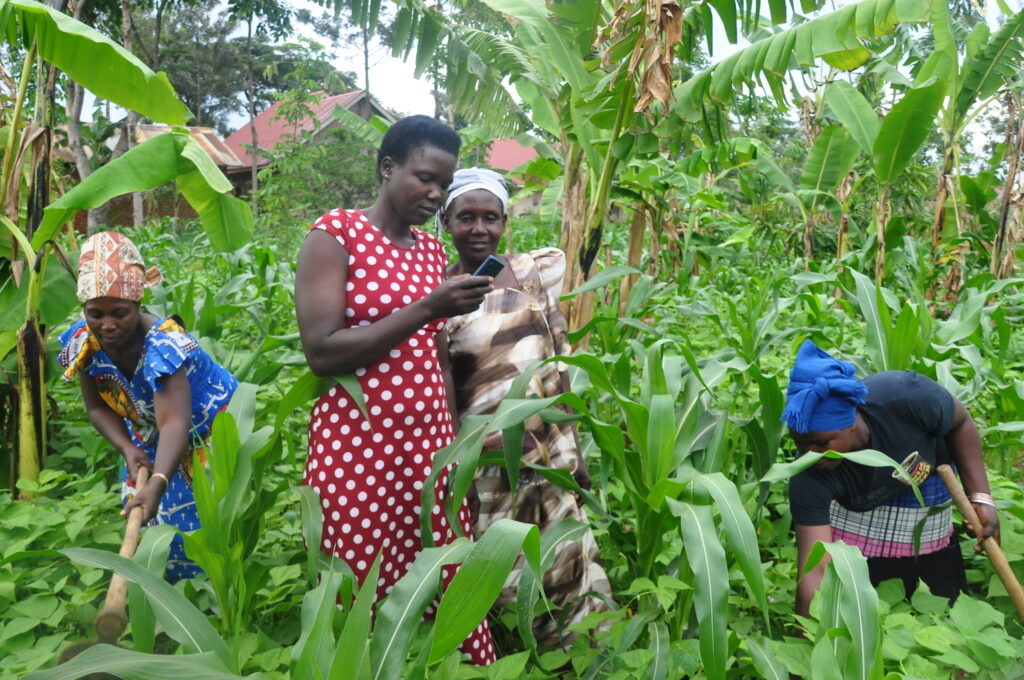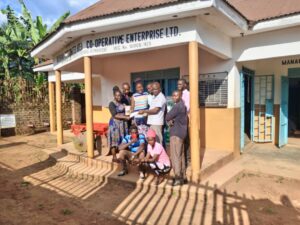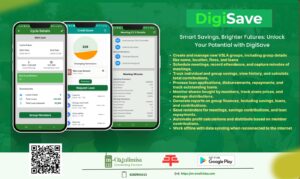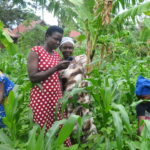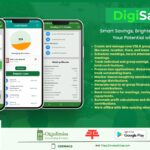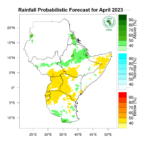Introduction
M-Omulimisa, with support from the Commonwealth of Learning’s Lifelong Learning for Farmers (L3F) initiative, recently piloted a Mobile Massive Open Online Course (MobiMOOC) to provide financial literacy training to farmers and village agents. This innovative program harnessed Uganda’s growing mobile phone penetration to deliver essential financial education to underserved rural communities.
The course featured 22 concise audio lessons, each lasting two minutes, recorded in the Lango dialect. These lessons were produced in collaboration with Voice of Lango, a local radio station in Lira, and made accessible via the M-Omulimisa MobiMOOC platform. To further support participants, a toll-free helpline was set up to handle inquiries and offer assistance throughout the course.
What is a MobiMOOC?
A MobiMOOC (Mobile Massive Open Online Course) uses pre-recorded audio messages to deliver educational content in areas where access to smartphones or the internet may be limited and the target community has low literacy levels. In this approach, users call a specific number—often toll-free—where an Interactive Voice Response (IVR) system guides them through various learning objects. This method ensures that educational content is accessible even to those with basic mobile phones, making it ideal for rural communities.
Pilot Financial Literacy Course
The training was delivered through mobile phones using pre-recorded audio messages. Course instructions, including welcome messages, course introductions, and reminders, were sent via text messages, which also provided the system telephone number. The instructions were simple and clear: participants needed to “beep” the system number, after which they would receive a callback within 5 seconds. This process required only a minimal amount of airtime—approximately UGX 50 (USD 0.01). Once the system called back, participants could listen to the recorded audio lessons. After each lesson, they were prompted with options for navigating the course:
1. Press 1 to repeat the lesson
2. Press 2 to move to the next lesson
3. Press 3 to return to the previous lesson
4. Press 4 to leave a question or comment.
If a participant left a question or comment, the system would address it during the next interaction—either when the participant beeped the system again or during the system’s daily automated call. The answers provided by course instructors were delivered first, ensuring participants received responses before proceeding with the next lesson.
Course Accessibility and Participant Experience
Participants in the pilot course highlighted the convenience and flexibility of the mobile-based format. “The course was both informative and enjoyable, and I could easily access it on my phone,” shared Sarah Adongi, one of the participants. She emphasized the freedom to learn at her own pace, often studying late at night after finishing her daily tasks. Similarly, Ajwang Vicky reflected on the positive impact of the technology. “We’re evolving with technology, and it’s making agriculture easier and more enjoyable,” she added.
Engagement Strategies and Feedback
To enhance participation, the course included daily SMS reminders, follow-up calls, and system-generated phone calls. The course received an average satisfaction rating of 80%, with participants praising the convenience and value of the MobiMOOC format.
One participant shared during post-course interviews, “I enjoyed the course so much that I invited my brother to listen along,” while another remarked, “The course was very useful and entertaining. I even made my first investment by purchasing two bulls, applying what I learned about saving.”
Participant Demographics and Gender Challenges
Of the 100 farmers selected for the pilot, 70 were female and 30 were male. Completion rates varied, with 47% of female participants completing the course, compared to 83% of males. The disparity was attributed to the unequal division of household labor in rural communities, where women often have greater domestic responsibilities. Gender-specific challenges also emerged, such as women not carrying their phones due to household duties or their phones being controlled by their husbands.
Broader Participation and Course Impact
In addition to the 100 farmers, 51 participants from partner organizations, including Sasakawa Global 2000, GOAL Uganda, and World Vision, as well as 26 M-Omulimisa village agents, joined the course. These participants provided valuable feedback, which will guide future course improvements. One government extension officer who participated in the course was so impressed that he requested future training for all the farmers he oversees.
Challenges Faced
Despite the course’s success, M-Omulimisa encountered several challenges. Some participants expected financial compensation upon completing the course, while others found the timing difficult due to the busy planting season. Additionally, gender-based challenges limited women’s participation, as many did not have access to their phones.
Conclusion
The pilot MobiMOOC on financial literacy was a resounding success, effectively reaching and engaging farmers through mobile phones while overcoming barriers such as low literacy levels and the lack of smartphones. Despite some challenges, the overwhelmingly positive feedback and strong demand for future courses highlight the immense potential of mobile-enabled learning to enhance financial literacy in rural Uganda. With further training planned, M-Omulimisa is leading the way toward more accessible, inclusive education in the agriculture sector. We invite partners, stakeholders, and organizations working in rural development to join us in empowering more farmers through innovative learning solutions. Together, we can make a lasting impact. Contact us to explore collaboration opportunities, or visit our website to learn more about our services.

